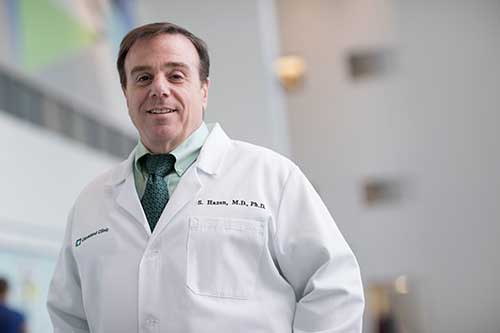
By Francis Allan L. Angelo
A team of researchers at the Cleveland Clinic, led by Dr. Stanley Hazen, has unveiled a new pathway that ties high levels of niacin, a common B vitamin, to an increased risk of cardiovascular disease.
The discovery, which appears in the journal Nature Medicine, points to 4PY—a niacin breakdown product—as a potential culprit in heart disease development.
Dr. Hazen, the Chair of Cardiovascular and Metabolic Sciences at Cleveland Clinic’s Lerner Research Institute, found that patients with higher 4PY levels experienced more cardiac events such as heart attacks and strokes. The study, encompassing large-scale clinical studies and preclinical trials, indicates that 4PY can trigger vascular inflammation, a key factor in atherosclerosis.
“What’s exciting about these results is that this pathway appears to be a previously unrecognized yet significant contributor to the development of cardiovascular disease,” Dr. Hazen shared. He underlined the potential for both diagnostic testing and new treatments to mitigate the effects of this pathway.
The study sheds light on the genetic connections between 4PY and vascular inflammation, laying the groundwork for new interventions. It also calls into question longstanding practices like the fortification of foods with niacin, as excess intake appears prevalent and potentially harmful.
Dr. Hazen likened the body’s niacin handling to a bucket being filled by multiple taps—once it overflows, compounds like 4PY emerge. He suggests it may be time to reconsider niacin fortification mandates.
Moreover, the findings may help clarify why niacin has fallen out of favor in cholesterol treatment. “Despite niacin lowering of cholesterol, the clinical benefits have always been less than anticipated based on the degree of LDL reduction,” explained Dr. Hazen, which points to unforeseen adverse effects.
With niacin supplements being widely available, Dr. Hazen advises consulting doctors before use and advocates a balanced diet. This breakthrough study calls for further research into the long-term impacts of 4PY and stresses the importance of understanding residual cardiovascular risks. Dr. Hazen also holds prominent roles at Cleveland Clinic’s Center for Microbiome and Human Health and occupies the Jan Bleeksma Chair in Vascular Cell Biology and Atherosclerosis.



















